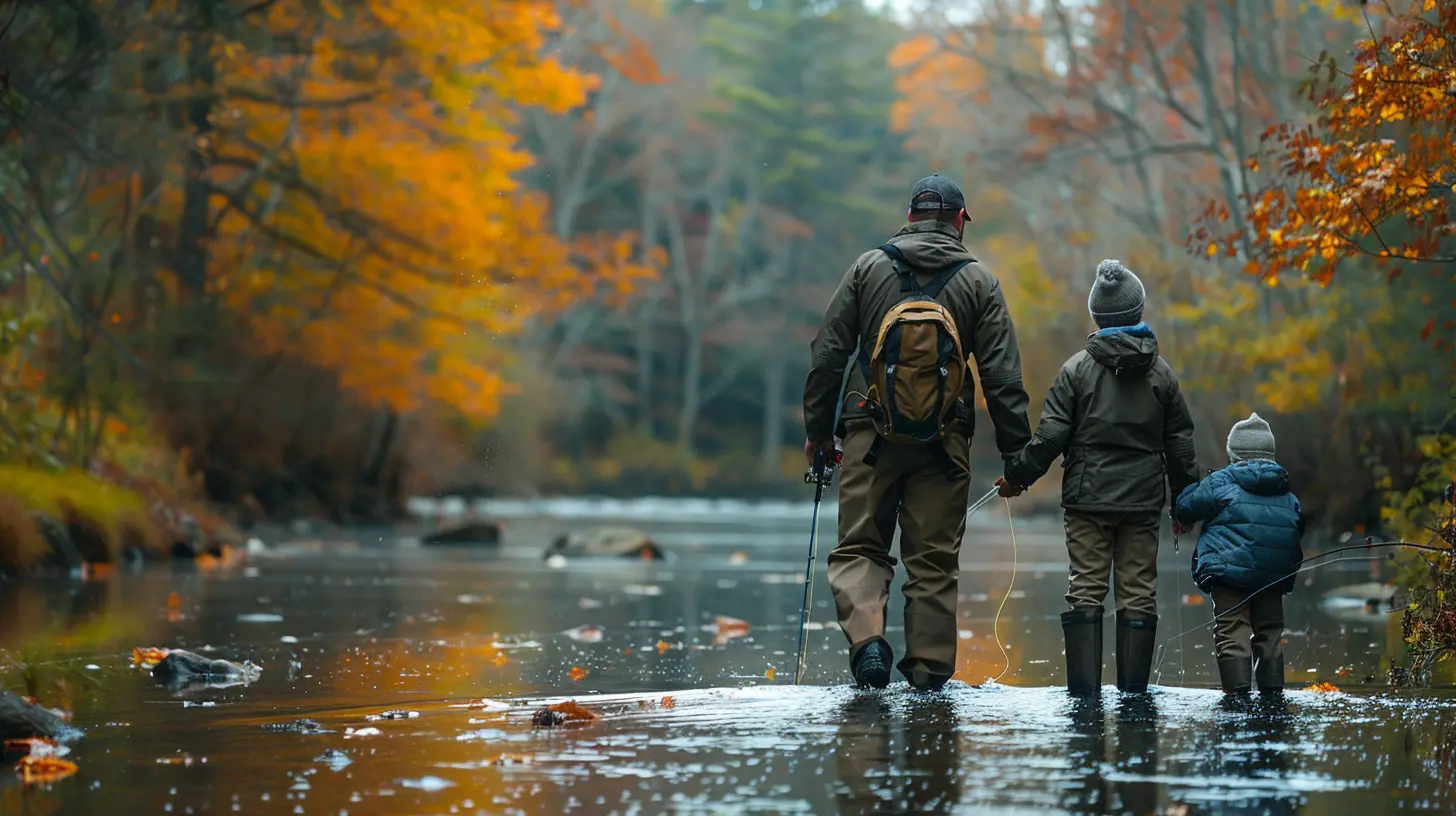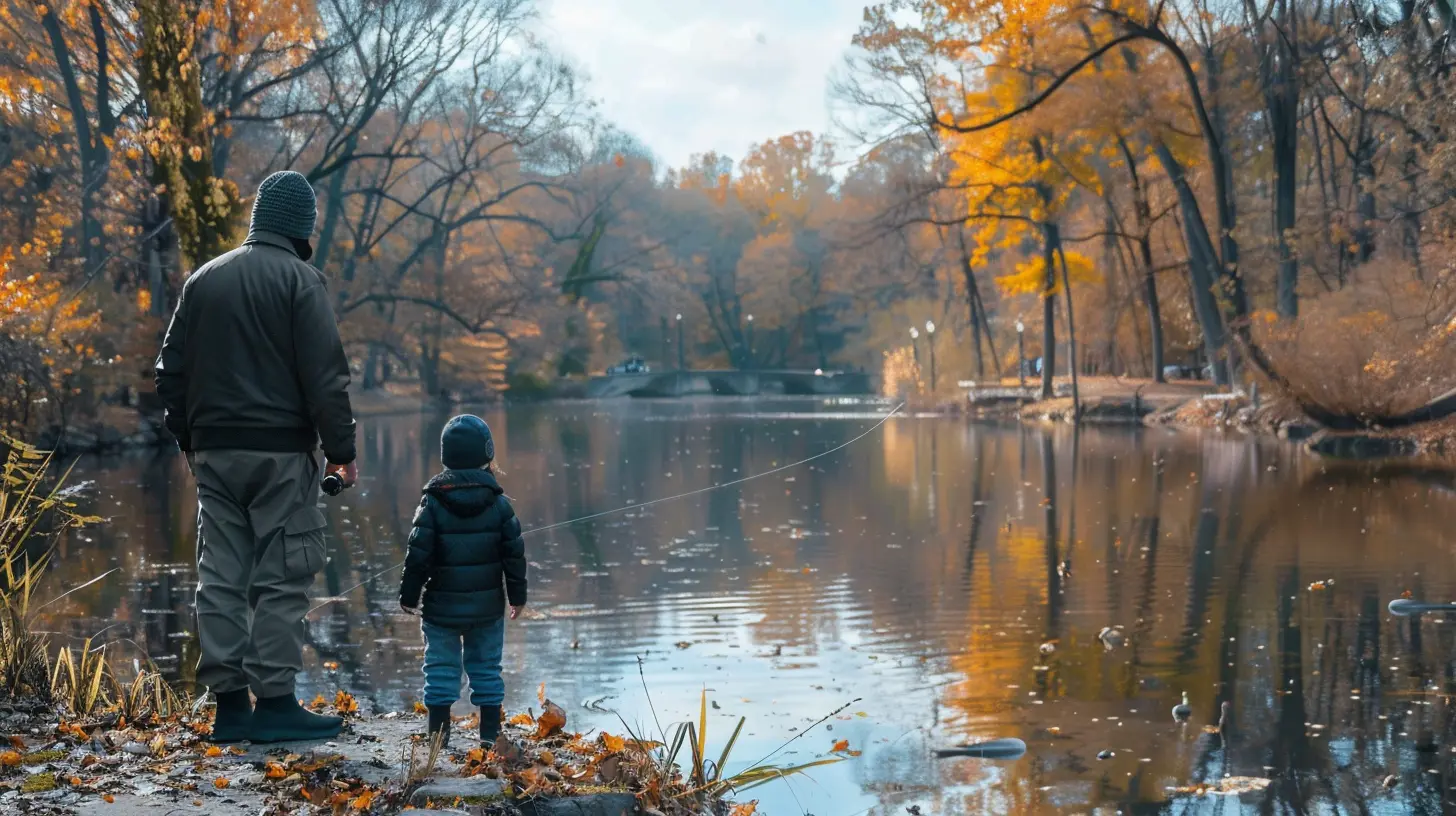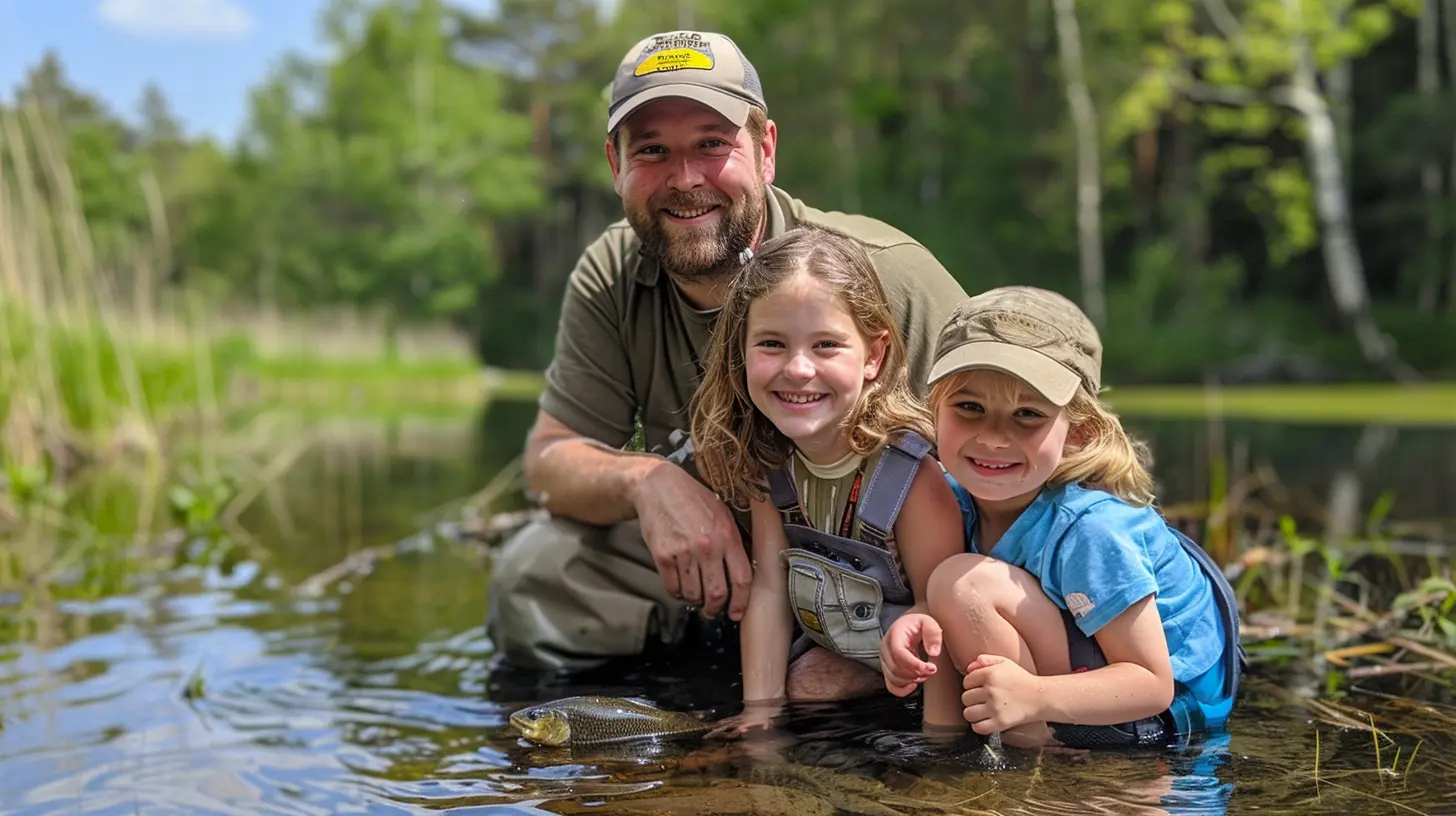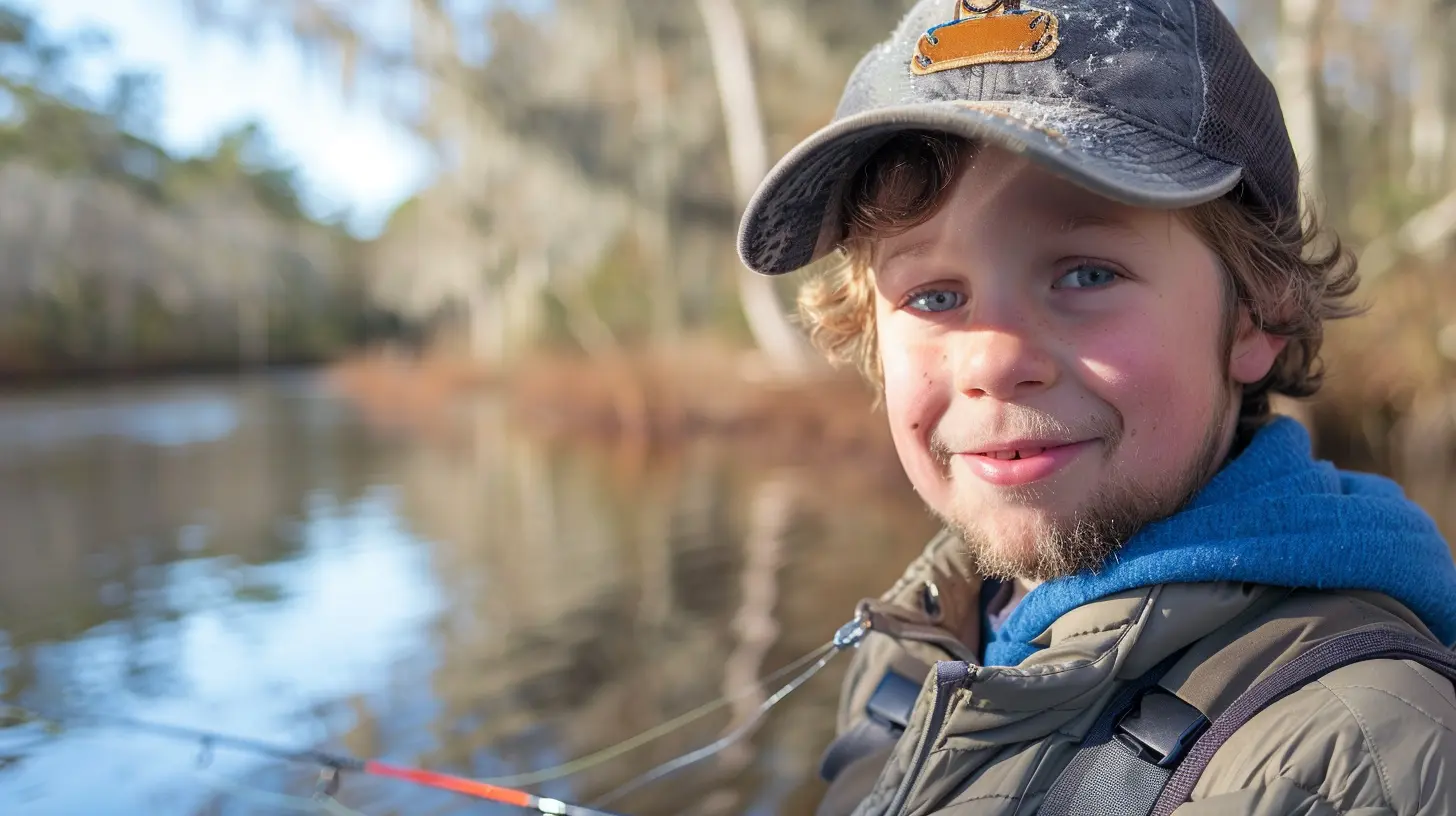Family Fishing Adventures: Beginner Tips for Parents and Kids
15 May 2025
Fishing is more than just catching fish—it's about building unforgettable memories, bonding with your kids, and spending quality time outdoors. If you've ever thought about taking your little ones on a fishing adventure but weren’t sure where to start, you’re in the right place!
In this guide, we’ll break down beginner-friendly fishing tips for families, making the experience enjoyable for both parents and kids. So grab your fishing rods, pack some snacks, and let’s dive in! 
Why Fishing Is a Fantastic Family Activity
Fishing isn’t just a great way to pass the time—it teaches patience, responsibility, and appreciation for nature. Plus, it’s an awesome excuse to put away screens and connect as a family.Here are some reasons why fishing should be on your family adventure list:
- Quality Time Together – Fishing gives you uninterrupted time to talk, laugh, and share exciting moments.
- Teaches Patience & Persistence – Sometimes, the fish don’t bite right away—what a great lesson in waiting!
- Boosts Confidence – Nothing beats the proud smile on your kid’s face when they catch their first fish.
- Encourages Outdoor Adventure – Fresh air, sunshine, and a bit of water—what could be better? 
Getting Started: What You’ll Need
Before you rush off to the nearest fishing spot, let’s make sure you have the essentials.1. Basic Fishing Gear for Beginners
You don’t need fancy, high-end equipment to enjoy fishing. Here’s a super simple checklist to get started:- Fishing Rod & Reel – Choose a lightweight rod that’s easy for kids to handle. A spincast reel is a great beginner-friendly option.
- Fishing Line – Opt for a 6-10 lb test line (this refers to the strength of the line).
- Hooks & Bait – Small hooks (#6 or #8) work best for kids. Bait can be live (worms, minnows) or artificial (soft plastics, spinners).
- Bobbers (Floats) – These help keep the bait at the right depth and make it easier to see when a fish bites.
- Needle-Nose Pliers – Handy for removing hooks safely.
- Tackle Box – A small box for storing extra hooks, lures, and other essentials.
2. Essential Extras for a Smooth Trip
Fishing is more fun when you’re comfortable. Pack these extras to make the trip enjoyable:- Sunscreen & Hats – Protect your skin from the sun.
- Bug Spray – Avoid unwanted mosquito encounters.
- Snacks & Drinks – Keep everyone hydrated and happy.
- First Aid Kit – Just in case of minor cuts or scrapes.
- Chairs or a Blanket – Sitting on hard ground isn’t ideal. 
Choosing the Best Fishing Spot
Finding the right location makes a huge difference, especially when fishing with kids. Look for places that are safe, easy to access, and teeming with fish.Family-Friendly Fishing Locations
- Public Ponds & Lakes – Many local parks have stocked ponds that are perfect for beginners.- Fishing Piers – These spots often have easy access and plenty of fish.
- Calm River Banks – Choose a slow-moving river with a gentle current.
- Paid Fishing Farms – Some farms stock fish to guarantee a catch, which can be great for kids.
Tip: Check local fishing regulations to see if you need a license. Some areas even have free fishing days for families! 
How to Teach Kids to Fish (Without the Frustration)
Fishing with kids is a blast—as long as you keep it simple and fun!1. Keep It Short & Sweet
Your child’s first fishing trip shouldn’t be an all-day marathon. Start with an hour or two and gauge their interest.2. Let Them Be Hands-On
Let your kids hold the rod, cast, and reel in the fish. It’s all about making them feel involved!3. Show, Don’t Just Tell
Demonstrate how to cast, reel, and handle the fish instead of just explaining. Kids learn best by watching and doing.4. Celebrate Small Wins
Even if they catch the tiniest fish, make a big deal about it! High-fives, pictures, and cheers will keep them excited.The Art of Catching Fish: Simple Techniques for Beginners
Fishing doesn’t have to be complicated. Here are a few basic techniques that are easy for kids and new anglers.Bobber Fishing (Great for Kids!)
- Attach a small bobber to the line about 1-2 feet above the hook.- Bait the hook and cast it out.
- Watch for the bobber to move—when it dips underwater, it's time to reel in!
Bottom Fishing (For Catching Bigger Fish)
- Use a small weight to keep the bait on the lake floor.- Wait for bites and reel in slowly.
- Works best for catfish and larger fish.
Lure Fishing (For Adventurous Beginners)
- Instead of live bait, use artificial lures.- Cast out and reel in with small jerks to mimic live prey.
- Works well in lakes and rivers.
Tip: If your child is struggling, try a simple worm and bobber setup—it’s the easiest way to catch fish!
Teaching Kids to Handle Fish Gently
Catching fish is exciting, but it’s equally important to teach kids how to handle them with care.Safe Catch-and-Release Tips for Kids
- Wet Your Hands – Dry hands can damage the fish’s protective slime.- Hold Gently – Support the fish with both hands.
- Remove Hooks Carefully – Use pliers and be gentle.
- Release Quickly – If you’re not keeping it, let it go as soon as possible.
If you plan to keep your catch, explain the importance of respecting nature and using the fish responsibly.
Keeping Kids Engaged Between Bites
Fishing requires patience, and kids can get restless if the fish aren't biting. Here are a few ways to keep them entertained:- Bring a Small Net – Let them try catching minnows or small fish near the shore.
- Tell Stories or Play Games – Make up fish-related stories or play "I Spy."
- Let Them Explore – Encourage kids to look for frogs, birds, or cool rocks nearby.
Remember, the goal is to make fishing fun—not just about catching fish!
Wrapping Up Your Fishing Trip
The best way to end a fishing adventure? With a celebration! Take pictures, talk about the best moments, and maybe even enjoy a small picnic.Before leaving, don’t forget to clean up the area. Teach kids the importance of keeping nature beautiful for others to enjoy.
Final Thoughts
Family fishing trips create special memories that last a lifetime. Whether or not you catch a fish, the experience of being outdoors, sharing laughter, and learning new skills together is what truly matters.So, grab your fishing gear, round up the kids, and set out on your next great fishing adventure! Who knows? You might just reel in the start of a brand-new family tradition.
all images in this post were generated using AI tools
Category:
Family ActivitiesAuthor:

Steven McLain
Discussion
rate this article
3 comments
Zora Burton
Balancing excitement and safety is key; ensure kids understand both fun and responsibility.
May 22, 2025 at 4:27 AM

Steven McLain
Absolutely! It's essential for kids to learn the joys of fishing while also prioritizing safety and responsibility.
Matilda Reynolds
What a delightful adventure! I'm curious about the best age to introduce kids to fishing. Are there specific techniques or gear you recommend for beginners? I'm eager to learn how to make this experience enjoyable and memorable for the whole family!
May 21, 2025 at 2:28 AM

Steven McLain
The best age to introduce kids to fishing is typically around 5-7 years old. Start with lightweight gear and simple techniques like bobber fishing. Focus on fun, patience, and safety to create lasting memories!
Uriel Chavez
Great tips! Fishing is a wonderful bonding experience for families.
May 17, 2025 at 4:05 AM

Steven McLain
Thank you! I’m glad you enjoyed the tips—fishing is indeed a fantastic way for families to bond!



